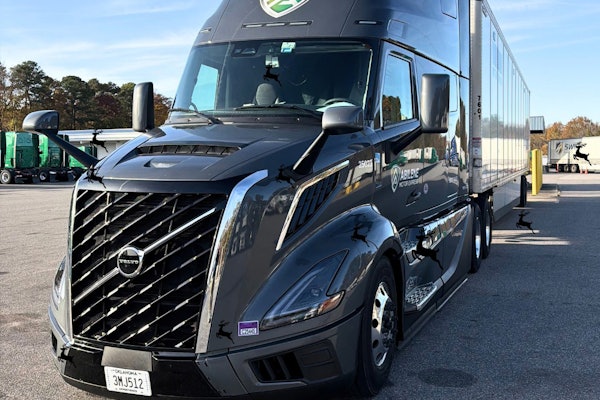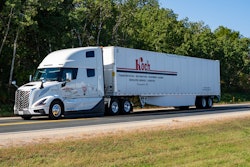In a letter to the Inspector General of the U.S. Department of Transportation, advocacy groups said that a July 14 meeting between the head of the Federal Motor Carrier Safety Administration and trucking industry representatives might have violated proper procedure and ethics.
The U.S. Department of Transportation denies any impropriety with the meeting.
The letter came from Public Citizen, Parents Against Tired Truckers, Citizens for Reliable and Safe Highways and the Trauma Foundation. It said the meeting had “a significant impact on the integrity of a federal agency and the conduct of official government business.”
The groups believe the meeting was designed to plan amendments to the pending H.R. 3 highway bill that would count daily break time as off-duty time. This hours-of-service change would extend the driver’s workday to 16 hours. This amendment was withdrawn on the House floor because of major opposition, and the groups do not want to see it sneak back into the bill thanks to backroom politics.
Federal law prohibits appropriated federal funds from being used to pay for actions intended to influence a member of Congress. The groups said that private meetings held between agency officials and stakeholders regarding pending rule issues at the very least violate both the Administrative Procedures Act and DOT regulations, and could constitute an ethical violation.
In a prepared statement, DOT said, “The Department’s view on this public policy issue is well known. Since last year, we have argued for our position in court; advocated for our proposal in Congress at hearings, in letters and at meetings; and made clear our approach when meeting with stakeholders about our plans. Throughout the entire process, we have operated within the statutory and ethical guidelines that govern such activities.”
“Lawmakers have a golden opportunity to dramatically improve vehicle safety,” said Public Citizen President Joan Claybrook. “They have an obligation to the country to enact these critical and long-overdue provisions.”
The groups’ letter also addressed the differences between the Senate-passed bill and the version of the Transportation Equity Act that is set to go before the House.
In a press release, Public Citizen noted that the Senate-passed version includes provisions ensuring future vehicles have stronger roofs, electronic stability control, side window glazing and side head air bags; and mandating the National Highway Traffic Safety Administration to study the problems of children being backed over by vehicles and being injured by power windows. But the House bill has none of these provisions because it does not have a commerce title.
U.S. Senators Ted Stevens (R-Alaska), Trent Lott (R-Miss.), Daniel Inouye (D-Hawaii), Olympia Snowe (R-Maine), John Rockefeller (D-W. Va.) and Mike DeWine (R-Ohio) all were noted for their bipartisan championing of the safety provisions. The Senate Commerce, Science and Transportation Committee unanimously approved the auto safety section of the legislation on April 14. The full Senate approved H.R. 3 on May 17.
Rep. Joe Barton (R-Texas), chair of the House Energy and Commerce Committee, has suggested putting the provisions in a separate bill in the fall, but Public Citizen reports that Senate conferees have made it clear this is not a viable option because of the Senate’s full fall schedule.
“Inaction is unacceptable,” said Judith Lee Stone, president of Advocates for Highway and Auto Safety, “especially when so many lives hang in the balance.”
Political action groups aren’t the only supporters of the bill. Insurance companies also stand behind the new legislation.
“We want to join with other safety advocates today in urging the transportation bill conferees to include a number of critical safety standards in the final version of H.R. 3. State Farm supports this legislation. It is an important step in advancing auto safety,” said Alan Maness, associate general counsel for State Farm Insurance Companies.
To read a copy of the letter, click here.








